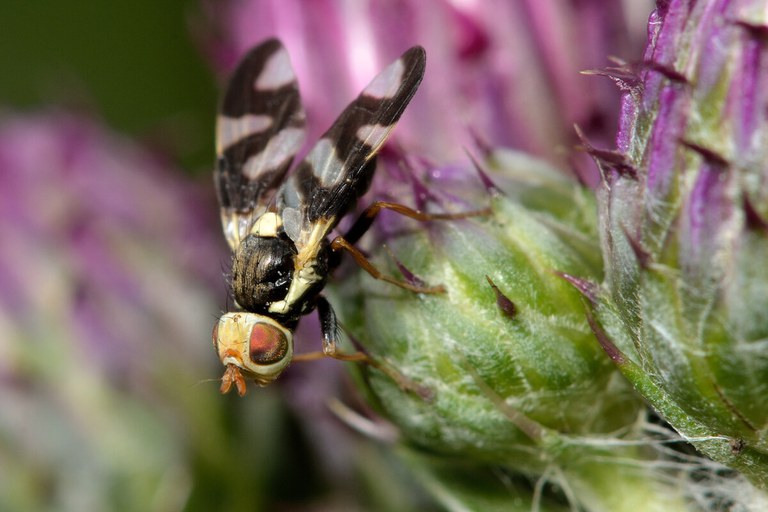Better knowledge of plant defenses against pests could reduce pesticide use.
Problem
How can growers leverage plants' natural defenses for biocontrol of insects?
- Pesticides may be toxic and are potentially hazardous to humans, other nontarget organisms, and the environment.
Findings
This research investigated the influence of goldenrod's chemical defenses in preventing gall flies from inducing galls, which are tumor-like growths on the plant that provide nutrition for the fly larvae but decrease the plants' ability to reproduce.
- The researchers exposed almost 300 goldenrod plants comprising 11 genetic types—or genotypes—to male flies and previously-mated females and tracked gall formation.
- They found that the plants respond to sex pheromones from the flies by strengthening—also known as "priming"—their chemical defenses to prevent females from laying eggs and inducing galls. However, the team also learned that the insects might have the upper hand by detecting the plants' chemical defenses and avoiding the "primed" plants.
Impact
The findings could have practical applications in agriculture, perhaps enabling us to enhance crop plants' defenses against pests without the need for environmentally disruptive pesticides.
Research Credit
Team
- Eric Yip, Consuelo De Moraes, John Tooker, Mark Mescher
Participating Department
Partners
- Penn State Eberly College of Sciences
- ETH Zürich
Competitive Funding
- Swiss National Science Foundation
- The David and Lucile Packard Foundation
Federal and State Appropriations
- USDA NIFA Hatch Project PEN04757, Accession #1024573
Emerging Discoveries
Published Research
Sensory co-evolution: The sex attractant of a gall-making fly primes plant defences, but female flies recognize resulting changes in host-plant quality
-
Yip, E. C., De Moraes, C. M., Tooker, J. F., & Mescher, M. C. (2021). Sensory co-evolution: The sex attractant of a gall-making fly primes plant defences, but female flies recognize resulting changes in host-plant quality. Journal of Ecology, 109(1), 99-108. https://doi.org/10.1111/1365-2745.13447
Office for Research and Graduate Education
Address
217 Agricultural Administration BuildingUniversity Park, PA 16802-2600
- Email agresearch@psu.edu
- Office 814-865-3136
Office for Research and Graduate Education
Address
217 Agricultural Administration BuildingUniversity Park, PA 16802-2600
- Email agresearch@psu.edu
- Office 814-865-3136



